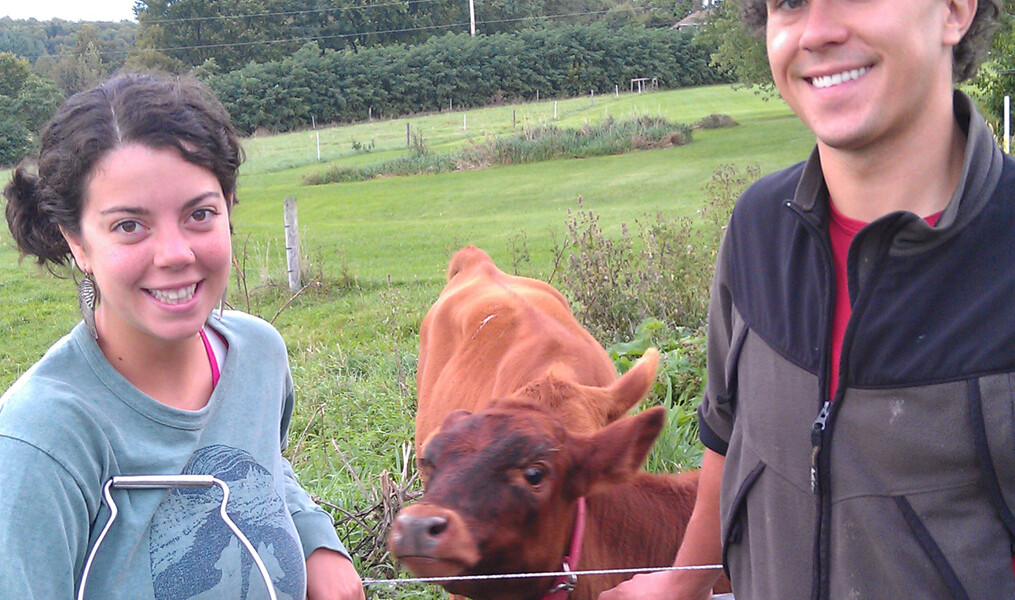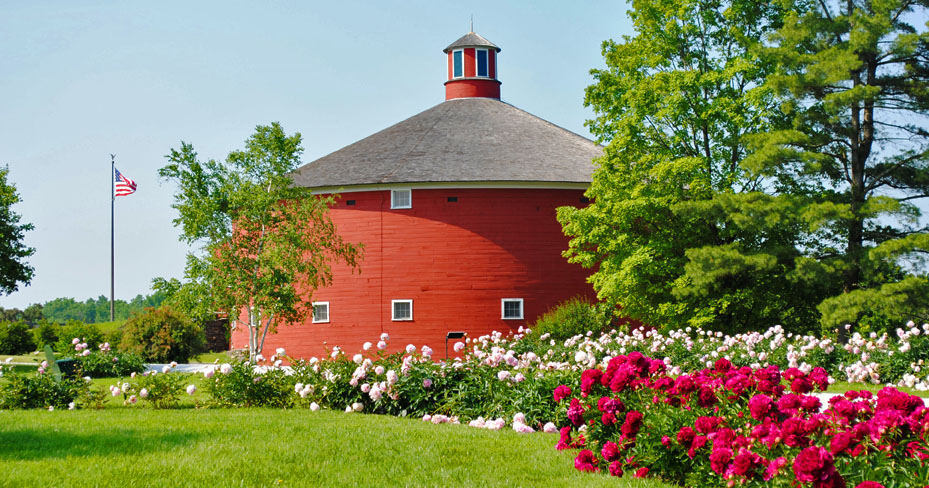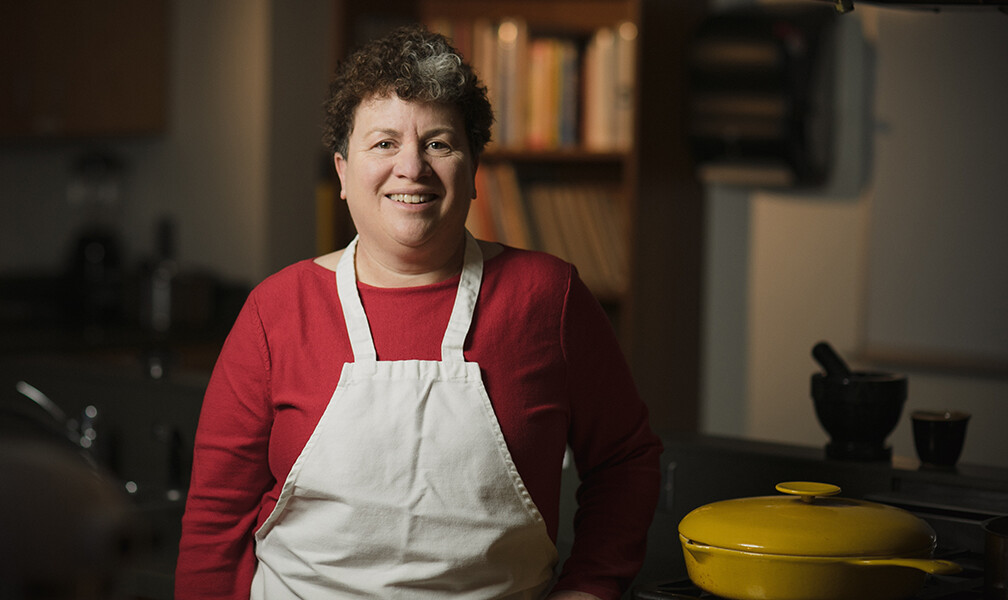(Photo: Flickr/Creative Commons)
Depleting fossil fuel reserves and fluctuating oil prices have generated interest among Vermont farmers to explore alternative, sustainable sources of energy. For the past decade, one of those options has been to grow oilseed for fuel.
When grown in rotation with other crops, oilseed crops — such as sunflowers, soybeans, and canola — are a sustainable way of producing clean, renewable fuel to power Vermont’s agricultural sector. Oilseed crops can also generate livestock feed and food-grade oil. As the Vermont Bioenergy Initiative points out, this bioenergy solution puts more money back in farmers’ pockets, and allows farmers to become more self-sufficient with new means to moderate the impacts of peak oil and climate change.
Researching Oilseed Production in Vermont

UVM Associate Professor Heather Darby, PhD, an agronomic and soils specialist, is researching the benefits and challenges of oilseed. Born and raised in Alburgh, Darby has been growing sunflowers on her family’s seventh-generation, 130-acre farm – The Darby Farm — for four years. She works with another local farmer to produce biodiesel for their farm whenever possible.
Not far from her farm is Borderview Farm, a small-scale biofuel production facility near the Canadian border. Borderview Farm is an applied research facility that partners with UVM Extension, specializing in oilseed crops, perennial grasses, small grains, hops production, and bio-based renewable energy research and development projects relevant to all size farms.
Borderview Farm leases about 40 acres to UVM Extension, where Darby and other researchers conduct various oilseed crop field trials, including soy, sunflower, canola, flax, and camelina.
Darby is teaching in UVM’s new Bioenergy Solutions Online Professional Certificate Program, which offers a comprehensive overview of current energy issues and new clean-energy solutions. Participants in the certificate program will also learn technical details about biofuels science and technology topics related to agriculture, the environment, and the economy.
We talked to Dr. Darby about oilseed production in Vermont and why farmers are embracing the bioenergy movement.
For how long have Vermont farms been using oilseeds for on-farm fuel production and livestock feed?
There are about a half dozen or so farms that are growing and using oilseeds on their farms. The number has fluctuated with fuel prices and also other commodity prices. UVM has been working with farmers on producing oilseeds for eight years, and there have been many farms in Vermont that have been recycling used vegetable oil for much longer. However, the shift to growing their own seed for fuel started almost a decade ago.
How have attitudes changed toward biodiesel practices and oilseed crop production in Vermont? Has it been challenging to persuade farmers to use this alternative?
Oilseeds are new crops for Vermont farmers and they pose many risks. Therefore, there has to be some benefit to taking this on. Farming is already risky enough, so creating more uncertainty by growing a new crop is not always welcome on farms. Still, when fuel prices have been really high, more farmers are interested in growing oilseed crops, and many farmers are willing to experiment to some degree.
You grew up in Alburgh and have your own farm, The Darby Farm. Do you use oilseed or anything related to bioenergy on your family farm? What first sparked your interest in combining bioenergy and agriculture?
I think all farmers strive for independence and self-sufficiency on many levels. Being able to supply your own fuel source is another significant step toward self-sufficiency on the farm.
We have been growing sunflowers on our own farm for four years and try to make biodiesel when we have a plentiful crop. Personally, I am interested in wind energy for our farm as Alburgh is a windy spot with its proximity to Lake Champlain.
Can you tell us about some current research/trials taking place at Borderview Farm in Alburgh? Have you come across any surprising findings about oilseeds?
We have conducted a wide variety of agronomic trials at Borderview Farm. These trials include, but are not limited to, a variety of trials, planting date studies, fertility trials, and seeding rate studies. We have worked with canola, soybean, sunflowers and a few minor crops, such as flax and camelina.
One major pest of sunflowers are migratory birds, including sparrows and red-winged black birds. We have found that modifying the planting date of sunflowers can help reduce bird damage to the crop in the fall. We have also found that sunflowers in Vermont tend to fall over – or “lodge” — due to natural fertility in our soils. Hence, nitrogen recommendations for Vermont sunflowers tend to be much lower than the major sunflower growing regions. Lastly, we have found that winter canola does not survive well in Vermont, and spring canola is a better choice.
What makes Borderview Farm in Alburgh a desirable place to conduct research? Is the soil/climate of the area favorable to oilseed crops, hop production, and other research projects?
The soils and climate in Alburgh at the farm are exceptional. But primarily, Roger Rainville, who owns Borderview Farm, has been a willing and excellent collaborator. Having sold his dairy herd after 25 years of dairy farming, Roger began experimenting with small, farm-scale biodiesel production in 2008.
Roger also actively assists as a research partner by preparing, seeding, and harvesting the plots, and then pressing the oilseeds for conversion into biodiesel and livestock meal. By producing his own fuel, food, and animal feed with oilseeds like sunflower and canola, Roger — and other Vermont farmers — are serving as a unified model for the agricultural community.





